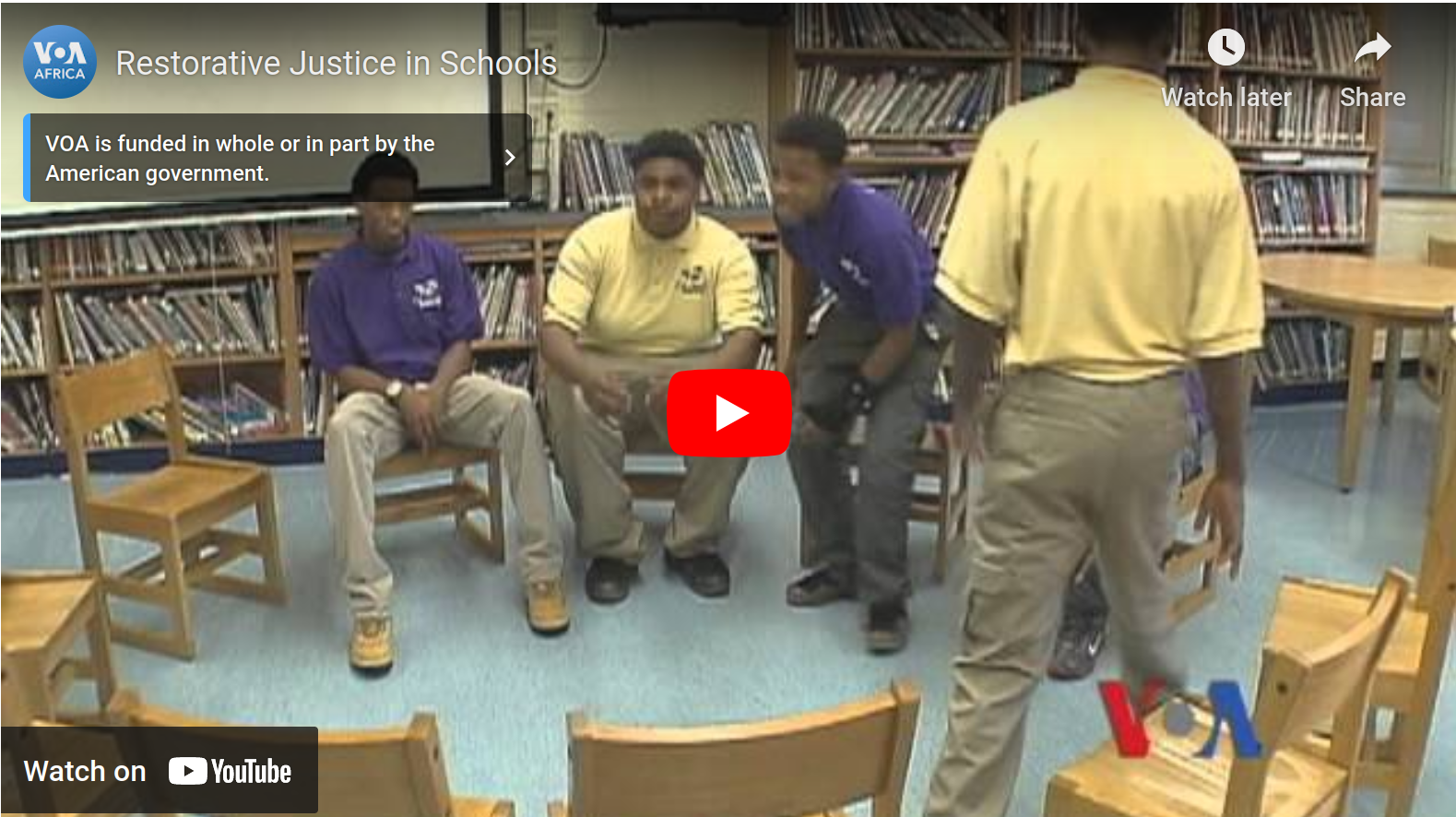News & Announcements
- Details
- Written by Joshua Wachtel
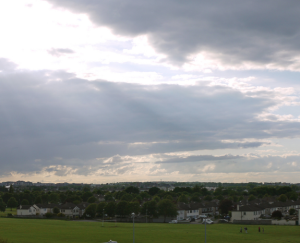 "Evening sky over Tallaght, Dublin" by pc-world at Flickr Creative CommonsThe Irish Independent reports on a restorative practices program in Tallaght, a large neighborhood in Dublin, Ireland. In addition to having trained teachers in schools, the program also involves youth workers, local authorities and members of the community and has been carried out by the Childhood Development Initiative (CDI).
"Evening sky over Tallaght, Dublin" by pc-world at Flickr Creative CommonsThe Irish Independent reports on a restorative practices program in Tallaght, a large neighborhood in Dublin, Ireland. In addition to having trained teachers in schools, the program also involves youth workers, local authorities and members of the community and has been carried out by the Childhood Development Initiative (CDI).
According to the piece, "A survey found six out of ten people in the community said relationships were better between service providers and users, 47% reported improvements with work colleagues, and 14% said they got on better with neighbours."
IIRK UK & Ireland provided the initial training for the project as well as ongoing support and consultancy on restorative practices. It also provided the Training of Trainers for the project staff, and IIRP courses, workshops and materials continue to be used.
- Details
- Written by Joshua Wachtel
 Photo by Jim Capaldi at Flickr Creative Commons
Photo by Jim Capaldi at Flickr Creative Commons
"Drawing from both liberal and conservative values, restorative practices cultivate a society based on participation and mutual self-reliance, where as citizens we take greater responsibility for our own lives," argues IIRP President Ted Wachtel argues in an op-ed piece in today's Philadelphia Inquirer. He begins with a story from about an incident at a Bethlehem, Pennsylvania, high school:
In May 2012, the principal of Freedom High School in Bethlehem, Pa., dealt with four seniors who seriously vandalized the school during "senior week."
In the past, the students would simply have been punished and excluded from graduation. Instead, principal Michael La Porta, whose school began implementing restorative practices nine months earlier, organized a "restorative conference."
- Details
- Written by Joshua Wachtel
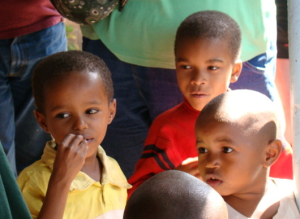 During the school year, Kristen Swanson teaches middle school at Pennridge School District in eastern Pennsylvania, USA. But this summer she will be leading a group to the nation of Rwanda in Africa to provide a learning experience for a new generation of children’s writers.
During the school year, Kristen Swanson teaches middle school at Pennridge School District in eastern Pennsylvania, USA. But this summer she will be leading a group to the nation of Rwanda in Africa to provide a learning experience for a new generation of children’s writers.
Rwanda, which is still recovering from the genocide committed there in the 1990s, will welcome Kristen and a team of experienced writers to Kigali, the nation’s capital, to deliver a writing workshop. The team's goal is to “build a culture of books starting with the very youngest readers” and “to spread stories of courage, forgiveness and reconciliation to the next generation” (as quoted on the project’s successful “Kickstarter” page).
- Details
- Written by Joshua Wachtel
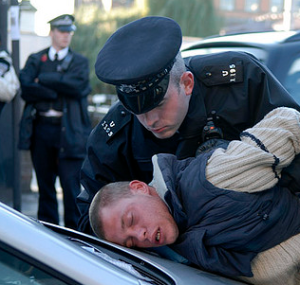 Photo by Jon Feinstein at Flickr Creative CommonsRestorative justice, while able to benefit the needs of young adult offenders and those they victimize, is underutilized. That's according to a report released today by the Restorative Justice Council (RJC) in the UK. "Restorative Justice: Factoring in maturity and facilitating desistance" by Ian Marder does three things:
Photo by Jon Feinstein at Flickr Creative CommonsRestorative justice, while able to benefit the needs of young adult offenders and those they victimize, is underutilized. That's according to a report released today by the Restorative Justice Council (RJC) in the UK. "Restorative Justice: Factoring in maturity and facilitating desistance" by Ian Marder does three things:
• Explains the concept of maturity and how it develops in young adults. It argues that maturity is a process, rather than an event, outlining the implications of this for restorative practitioners working with offenders and victims from this age group;
• Analyses the links between participation in a restorative process and desistance from crime, applying the existing theoretical and empirical evidence on restorative justice and desistance to young adult offenders;
• Discusses the use of restorative justice in other jurisdictions, before outlining the current provision of restorative justice for young adults in England and Wales and the variety of intervention points at which restorative practices can be utilised. (p. 7) [emphases added]
- Details
- Written by Joshua Wachtel
I've featured IIRP's work with City Springs Public Charter School (K-8) in Baltimore, Maryland, a number of times in the past. Now, in this 6-minute segment from Voice of America's African TV2, reporter Laurel Bowman presents what she found during her visit to the school earlier this spring. Both proactive and responsive practices are highlighted here, including circles and a restorative conference with children young and old.
- Details
- Written by Joshua Wachtel
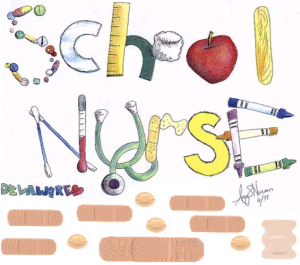 The following are excerpts from a recent article published in School Nurse News by Laura Mirsky, IIRP Assistant Director for Communications.
The following are excerpts from a recent article published in School Nurse News by Laura Mirsky, IIRP Assistant Director for Communications.
Kathleen Hawkins, a school nurse at Liberty [High School in Bethlehem, Pennsylvania] for 15 years (25 years overall), was trained in restorative practices along with all of Liberty’s staff. Hawkins says that restorative practices has allowed her to improve her nursing practice. She has found the restorative approach to be fundamentally compatible with the nursing process, as set forth in the acronym “DAPE” — Data, Assessment, Plan and Evaluation. Says Hawkins, “Like with restorative practices, you sit down and collect information about a patient — how they feel — then you assess the information, plan how you’re going to handle it and evaluate what you did. That’s the way nurses think.”
The difference is that restorative practices is more intentional in terms of collecting emotional data, says Hawkins. ...
- Details
- Written by Joshua Wachtel
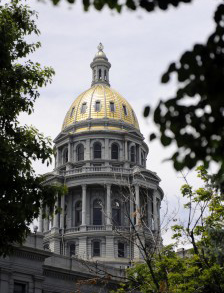 This year Colorado has passed yet another law to advance the use of restorative justice across the state. With this law Colorado State House Representative Pete Lee and State Senator Linda Newell continue to build upon past legislative victories. They enjoy the support of many grassroots efforts as well as the work of a wide range of schools, police, probation and prison workers, and community groups across the state.
This year Colorado has passed yet another law to advance the use of restorative justice across the state. With this law Colorado State House Representative Pete Lee and State Senator Linda Newell continue to build upon past legislative victories. They enjoy the support of many grassroots efforts as well as the work of a wide range of schools, police, probation and prison workers, and community groups across the state.
Restorative Justice Colorado, which was established by state legislative action back in 2008 to coordinate restorative justice efforts throughout the state, explains the new law on its blog:
This new law will initiate an RJ fund via a $10 surcharge on offender fees. These dollars will help seed new pilot projects and develop research and evidence on the value of restorative justice. The money will also support a position for a state RJ Coordinator that supports the State RJ Council and RJ programs around the state.
Perhaps most importantly the new law will provide the opportunity to almost all juveniles referred to the justice system.
- Details
- Written by Joshua Wachtel
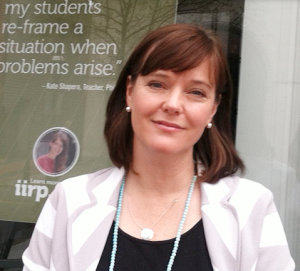 As a recipient of the Anika Foundation Scholarship, Sam Kourakis came to North America for five weeks to study restorative practices with the IIRP and a number of schools implementing restorative practices on a whole-school basis. Sam is a counselor at SCEGS (Sydney Church of England Coeducational Grammar School) Redlands, a private school in Sydney, Australia. She's been working with restorative practices in Australia for 15 years. At SCEGS they've incorporated circles in classrooms at every level, also involving parents.
As a recipient of the Anika Foundation Scholarship, Sam Kourakis came to North America for five weeks to study restorative practices with the IIRP and a number of schools implementing restorative practices on a whole-school basis. Sam is a counselor at SCEGS (Sydney Church of England Coeducational Grammar School) Redlands, a private school in Sydney, Australia. She's been working with restorative practices in Australia for 15 years. At SCEGS they've incorporated circles in classrooms at every level, also involving parents.
Sam began her trip in April by attending IIRP's 4-Day Basic Restorative Practices event in Boston, Massachusetts. She wrote on her blog, "It has been an amazing experience in which I have met professionals from a range of different settings, including schools, social services, health services and the juvenile justice system. These are all environments in which restorative philosophies can be embedded to develop relationships and strengthen positive community."
- Details
- Written by Joshua Wachtel
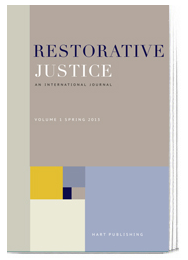 Restorative Justice: An International Journal, is currently seeking submissions.
Restorative Justice: An International Journal, is currently seeking submissions.
As stated on its web site, this peer-reviewed academic journal "seeks to facilitate the development and exchange of the best and most rigorously researched theoretical and practical scholarship within the domain of Restorative Justice (RJ).
"Restorative Justice publishes original, ground-breaking and innovative articles about RJ and contains a vibrant book review section in which new books relevant to RJ are reviewed by leading scholars in the field. As such the journal seeks to be the leading worldwide forum for those working in the field of RJ - academics, researchers, practitioners, policy-makers and interested citizens."
Detailed submission guidelines may be found here.
All Restorative Practices eForum subscribers are entitled to a discounted subscription to Restorative Justice.
- Details
- Written by Joshua Wachtel
Youth United for Change (YUC) describes itself as "a youth-led, democratic organization made up of youth of color and working class communities, with the 'people' and political power to hold school officials and government accountable to meeting the educational needs of Philadelphia public school students."
The following video, produced by YUC and the Advancement Project, features youth talking about how security measures in schools, such as police officers and metal detectors, actually make them feel less safe and often criminalize them for normal youthful behavior. They propose that their schools use restorative justice as an alternative, and the film shows them using restorative circles in a manner that suggests proactive community building.
Last year YUC was instrumental in winning changes to the Philadelphia schools student conduct code. They have also partnered with groups like the Dignity in Schools Campaign to work to end the so-called "school to prison pipeline."
This video, "Youth United for Change: Bring Safe Schools to Philadelphia," can also be seen here.
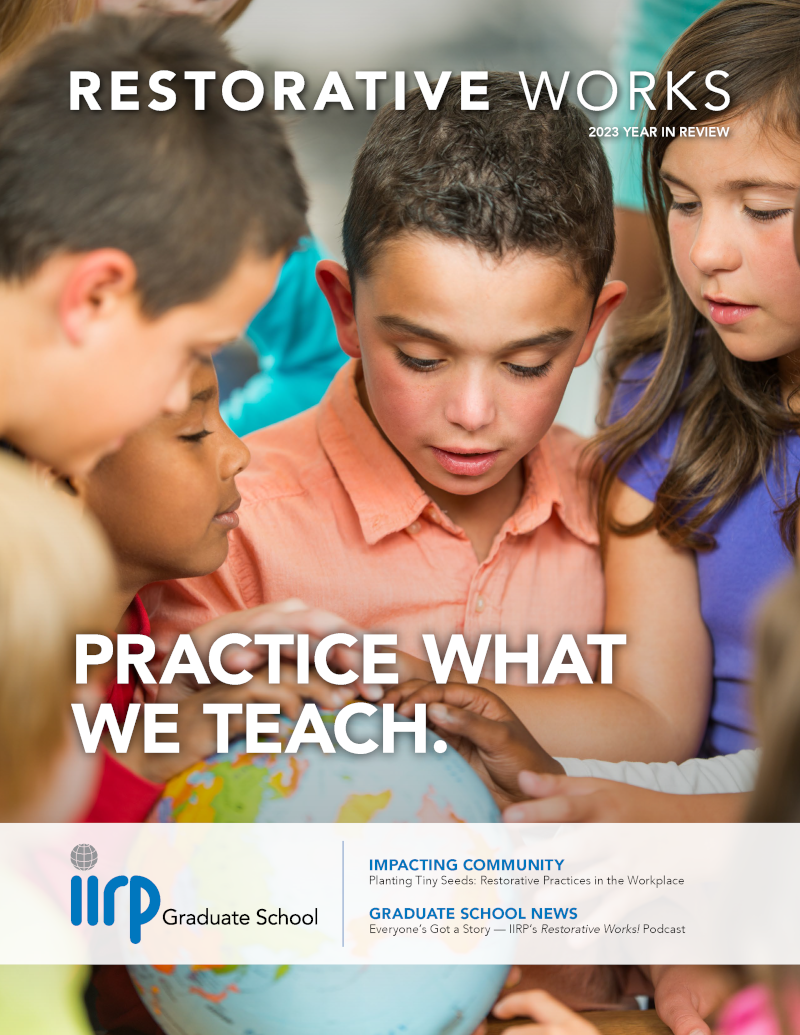
Restorative Works Year in Review 2023 (PDF)
All our donors are acknowledged annually in Restorative Works.

